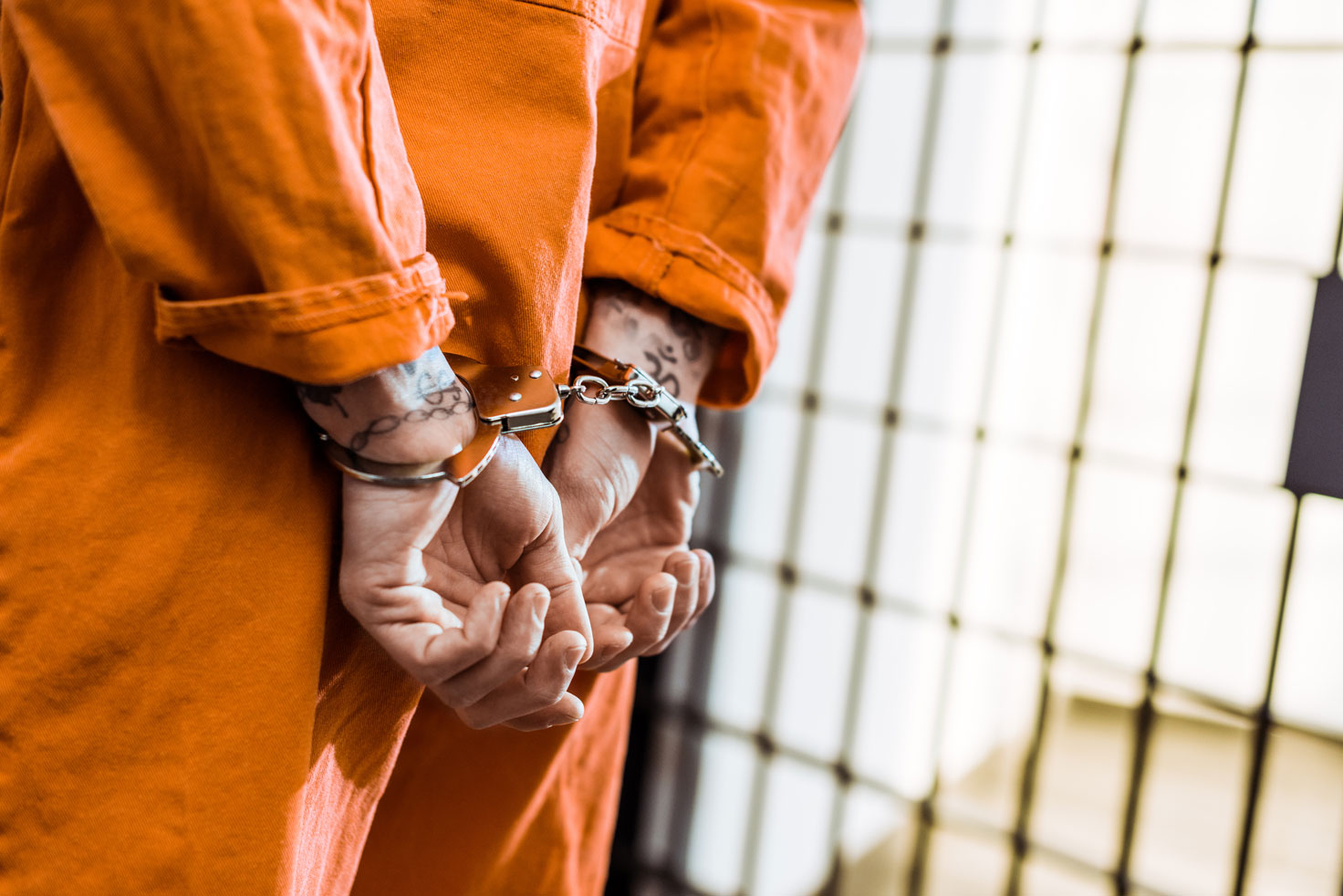Bail Bond for Murder (PC 664/187)
If you or a loved one find yourselves in a difficult situation, we understand the urgency and stress that comes with it. At Angels Bail Bonds, we specialize in providing the support and assistance needed to secure bail for murder charges.
Learn the basics about the bail process for a murder charge, and then contact Angels Bail Bonds today. Let us be your trusted partner in navigating the bail process for murder charges. We are here to help you regain your freedom and prepare for your legal journey.
When dealing with serious charges like murder, securing your freedom quickly becomes a critical step. At Angels Bail Bonds, we offer specialized bail bonds for murder cases, working efficiently to help you or your loved one post bail. Our experienced bail agents are skilled in navigating the complexities that come with these types of charges, and we work closely with a network of legal experts to ensure you get the best possible outcome. With a trusted bail bonds company like Angels Bail Bonds by your side, you can focus on preparing your defense and regaining a sense of normalcy in your life.
What Is Bail?

Bail in California refers to the amount of money or property that a defendant or their surety (a person responsible for the defendant’s appearance in court) must deposit with the court to secure the defendant’s release from custody while awaiting trial.
The purpose of bail is to ensure that the defendant appears in court for all scheduled hearings and does not flee before the trial. A bail schedule or table determines bail amounts, but a judge can deviate from the schedule based on various factors, including the severity of the offense, the defendant’s criminal history, and if the defendant is a flight risk. If the defendant fails to appear in court, the bail is forfeited, and a warrant may be issued for their arrest.
What Are Bail Bonds?
When you find yourself in a situation where you can’t afford to pay for your bail, bail bonds might be the solution for you. A bail bondsman, who a bail bond company employs, will charge you a fee in exchange for providing the payment. Bail bond companies in California charge only 10% of the total bail amount to post-bond for a defendant. So, if the bail amount is $20,000, the bondsman will charge $2,000 instead of the full amount. While this may still seem like a lot of money, it’s much more affordable than paying the entire bail amount, especially on extremely high bail amounts for some serious felonies.
Those rates can be as high as 20% for some immigration and federal charges because these rates are set by law, and all bail companies must charge the same amount. Despite the costs, using a bail bondsman can be a lifesaver for those who cannot afford to be released from custody on bail.
Remember, the concept of bail is founded on the principle that an accused person is considered innocent until proven guilty beyond a reasonable doubt, whether they’re being accused of infraction offenses or felonies.
What Happens At A Bail Hearing?
The amount of bail is normally set at the person’s initial court appearance, often known as the arraignment stage or pre-trial detention. A judge can either release a person on their own recognizance (OR) with a promise to appear in court at a later date or deny their OR and impose bail.
If the charges are infraction offenses or even some misdemeanor offenses—such as a DUI with no accident injuries or significant property damage— the person will usually be released without bail after being arrested. More serious felony charges, like assault with a deadly weapon, will not have OR as an option and will only be released from custody on bail.
You must pay the bail amount or post a bail bond on the bail schedule. An arresting officer might ask for a higher bail amount than what the bail schedule suggests.
What Factors Influence a Defendant’s Bail Amount?
The bail bond process starts when a defendant is in front of a judge to determine bail. Then several factors are put into play, including the severity of the crime, criminal history, whether the defendant is a flight risk, community ties, financial resources, their potential danger to public safety, and even mental health are considered when determining bail amount.
The bail schedule further gives guidance for all criminal charges, with the judge having some leeway in the specific amounts, as mentioned. And even if they’re allowed out on bail, the defendant might have to be placed under house arrest, be prohibited from owning any deadly weapons or placed under electronic monitoring.
Have You Been Charged With Criminal Murder PC 187?

If you’ve been charged with a criminal offense like attempted murder, you or a loved one must contact the experts at Angels Bail Bonds immediately. Our team of bail bondsmen and criminal defense lawyers provide assistance during pre-trial detention at no extra cost, including nationwide.
What is Attempted Murder?
According to the California Penal Code, PC 187, murder is the intentional and unlawful act of killing another person. It involves a specific intent to cause the victim’s death and a direct step toward that goal and with a conscious disregard for human life. The act can be done through various means, such as poisoning, shooting, running over with a motor vehicle, stabbing, or strangling. The punishment for murder in California can include life imprisonment with the possibility of parole and, in extreme cases, even the death penalty.
PC 187 defines murder as “the unlawful killing of a human being, or a fetus, with malice aforethought.” However, California has exceptions that do not apply to all cases of death of a fetus, such as when the act was solicited, aided, abetted, or consented to by the mother of the fetus or when performed by a surgeon or physician in cases where the mother’s life is in danger.
The penal code also establishes that the crime of murder and attempted murder will be punished more severely if the murder victim was a “peace officer, police officer, firefighter, custodial officer, custody assistant, or non-sworn uniformed employee of a sheriff’s department engaged in the performance of his or her duties.” Such cases of first-degree murder are punished with life in prison without the possibility of parole or even the death penalty. Other special circumstances for first-degree murder include taking a life with conscious disregard for financial gain, as a hate crime, when using a bomb or weapon of mass destruction, and even for killing a witness.
The direct step or action is more than just planning to murder someone. For the criminal charges to lead to a murder conviction, you have to put the plan in motion.
Types of Murder Charges in California
All cases of murder and attempted murder are felony charges. There are two degrees of murder.
First-degree murder
First-degree murder is taking direct and premeditated action against another person, or fetus, with the intent of killing, not just harming, that person. The charges can also be brought on the defendant if other felonies, like rape and arson, caused the death of someone and you had no regard for the outcome in an act of reckless indifference.
Second-degree murder
Second-degree murder is a felony charge applied in cases where the murder was not premeditated and deliberate, even if there was direct action and intent to kill at the moment.
Capital Murder
In California, first-degree murder with special circumstances is typically also referred to as capital murder, although that legal distinction does not exist. The special circumstances are many, including, but not limited to:
- Killing more than one victim.
- Taking a human life for financial gain.
- When the murder victim is a police officer or another law enforcement officer like firefighter, prosecutor, judge, juror, or elected official.
- The murder victim was also the victim of a hate crime because of their race, gender, country of origin, sexual orientation, and other factors.
- A bomb, destructive device, explosive or weapon of mass destruction was used.
- The defendant killed someone as part of a criminal street gang.
Most cases of capital murder are punished with a life sentence without parole and even the death penalty.
Felony Murder-Rule
Another notable distinction in California murder law is the felony murder-rule, which introduced the concept of felony murders. These are murders that occur while the defendant is committing another dangerous felony. These can also be classified based on the same degrees of murder, like first-degree felony murder and second-degree felony murder.
Many cases of DUI murder are tried under this classification. DUI murder is when a driver is intoxicated and suddenly decides to take a human life, making it a second-degree felony murder. DUI murder is not the same as vehicular manslaughter, as the unlawful killing was not intentional manslaughter, especially if it’s involuntary manslaughter.
The felony murder-rule states that these murderers shall be punished by 25 years to life in prison, life imprisonment without parole, or even the death penalty.
Distinction From Manslaughter
In the case of second-degree murder, the lack of planning a murder beforehand does not mean the case is involuntary manslaughter or voluntary manslaughter, where the death occurred, but the circumstances make it clear there was no planning involved, or it was justified, as in self-defense.
Manslaughter is the unlawful killing of a human being without malice aforethought. The three types recognized are voluntary manslaughter and involuntary manslaughter.
- Voluntary Manslaughter: Voluntary manslaughter occurs when a person takes the life of another person during a sudden quarrel, in the heat of passion, or in the unreasonable belief that they are acting in self-defense. The key distinction between voluntary manslaughter and murder is the absence of malice aforethought, which means there was no premeditation or intent to kill. However, the killing is still intentional and not accidental.
- Involuntary Manslaughter: Involuntary manslaughter refers to the unintentional or accidental killing of another person while engaging in an unlawful act, not amounting to a felony, or in the commission of a lawful act that might end in an unlawful manner or without due caution and circumspection. Involuntary manslaughter is generally associated with reckless or negligent behavior that results in someone’s death.
- Vehicular manslaughter: Vehicular manslaughter is a type of involuntary manslaughter where a death occurs as a result of driving with reckless indifference to human life. An even worse offense is vehicular manslaughter while intoxicated and driving with reckless indifference to human life. These cases are sometimes referred to as DUI Murder cases, but this is incorrect, as the correct term is gross vehicular manslaughter while intoxicated. DUI Murder applies to a second-degree murder where the driver was intoxicated and intended to kill a person but without premeditation or a plan to do so.
So, while there are many ways to take a human life, premeditation and intent are key to murder chargers.
Penalties in Murder Cases

The California Penal Code classifies murder as the most serious offense on the books, and the penalties vary depending on whether it’s charged as a felony in the first or second degree or carried out while committing another felony.
First-degree murder is punished by a life sentence in state prison with the possibility of parole, while second-degree murder alone is punishable by 15 years to life in state prison.
The sentence would be life in prison without the possibility of parole if the murder victim was intended to be a peace officer, firefighter, custodial officer, or other law enforcement officer of the state of California, in which case this first-degree murder is called “capital murder.”
Other special circumstances punished with life in prison without the possibility of parole or even the death penalty are cases where human life was taken by means of a “destructive device, bomb, or explosive,” and the defendant knew that his or her act or acts would create a great risk of death to one or more human beings; or in cases where the murder was for financial gain, as part of a hate crime, or killing more than one victim.
As mentioned above, the felony murder-rule states give 25 years in prison or more, a life sentence without parole, or the death penalty to first-degree felony murders. Second-degree felony murders can also include life in prison or the death penalty, but the minimum amount is lower, at 15 years in prison. A common defense against second-degree murder while committing another felony is to prove the death occurred accidentally in the process of the felony, making it involuntary manslaughter and, thus, lowering the penalty.
Average Bail for Murder (PC 664/187)
Murder and attempted murder are the two most serious crimes in the California Penal Code and on the bail schedule, with the initial bail set at $1,000,000 to no bail at all for murder. In many counties, like Los Angeles County, the bail is as high as $2,000,000.
You Need An Experienced Bail Bond Agent That Specializes In Murder Defense
The bail bond process for a murder charge is almost impossible without expert help at your side, as the standard bail for murder is $1,000,000 to no bail. Nonetheless, a bail bond company and a criminal defense attorney can aid you during this difficult time and help you and your loved one obtain that bail money.
Free Consultation & Case Review
Do you know someone who has been arrested for murder? Look no further because we are here to help. At Angel Bail Bonds, we work with experienced bail bondsmen and criminal defense attorneys to be your best option, even in cases where you need bail for murder or attempted murder. We offer flexible payment plans and affordable rates to make the bail process more manageable for you and your loved ones. If you have any questions about how bail laws and the bail bond process works in California or if you need assistance helping a loved one, don’t hesitate to call us today.




